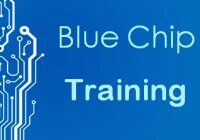 Overview
Overview
Node.js is a platform for easily building fast, scalable network applications. Learn how to use the event-driven, non-blocking I/O model to build data-intensive real-time applications that run across distributed devices. We will explore the design choices that make Node.js unique, how this changes the way applications are built and how systems of applications work most effectively in this model. Learn how to create modular code that’s robust, expressive and clear. Understand when to use callbacks, event emitters and streams. Use streams to easily manipulate data that would be impossible to fit in application memory. Gain confidence in handling errors effectively to ensure runtime reliability. The course has extensive lab exercises to reinforce the concepts and techniques covered.
Objectives
On completion of this course, students will be able to:
- Clearly understand the platform design choices that led to Node.js choosing an event loop and what this means for applications built on that foundation.
- Understand the unique trade-offs present in event-driven programming.
- Create Node.js modules and express code modularity in an application.
- Understand the core flow control patterns in Node.js and know when it is appropriate to use callbacks, event emitters or streams.
- Create and manipulate buffers efficiently.
- Understand how to manage error state and know when a process should exit due to an error.
- Build network applications with Node.js.
Requirements
Students taking this course should have JavaScript programming experience.
Course Outline
Intro to Node.js
- RAM vs. I/O latency
- Blocking vs. Non-Blocking
- Event-driven Programming
- Event Loop
- Blocking The Event Loop
- Node.js Philosophy
Node.js Platform Setup
- Download and Install
- Node REPL
- First Hello World
Modules and npm
- Anatomy of a module
- Private code
- Accessing and using modules
- npm commands
- package.json
The Callback Pattern
- What are callbacks
- Callback-last
- Error-first
Events
- When to use Event Emitters
- Binding Functions to Events
- Event Requests
- Event Listening
Error Handling
- Callbacks: Error-first
- Errors in Event Emitters
- Uncaught Exceptions
- Using Domains
Buffers
- Why Buffers exist
- Creating Buffers
- Reading and Writing Buffers
- Manipulating Buffers
Streams
- What are streams
- Read and Write Stream API
- Flow Control
- Piping
- Duplex Stream
- Transform Stream
Express.js
- Intro and Installing Express.js
- Building a Hello Express application
- Creating routes
- Rendering Layouts
- Using templates
- Adding partials
- Using locals and conditional templates
- Modularizing routes
Socket.io
- Listening for
- Broadcasting
- Answering questions
Connecting to Databases
- No SQL and Document Stores
- Relational DBs
- Configuration and platform setup
- CRUD Operations
